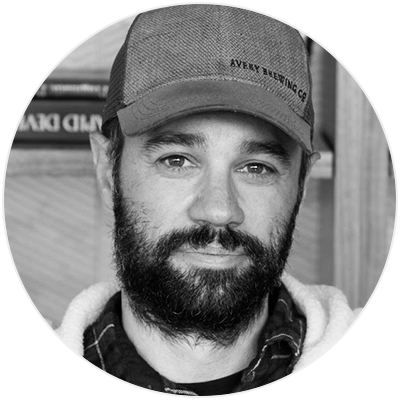Longform security research with actionable guidance and recommendations on a variety of security topics to stay informed of security problems and ahead of attackers
Public/private partnerships with organizations like CISA, JCDC, NATO, CERT NZ and the World Economic Forum to support the security community and create a safer cyberspace

Tamara Chacon
Security Strategist, SURGe
Tamara was born and raised in Colorado Springs, CO. She graduated from the University of Northern Colorado in Criminal Justice and Anthropology. She is a security strategist on the Splunk SURGe team and is currently based out of Virginia. When she is not working, she loves to play with her wild boxers, golf and cook.

Mick Baccio
Global Security Advisory, SURGe
Mick fell in love with the idea of cyberspace around nine years old after reading Neuromancer. Before joining Splunk, he was the Chief Information Security Officer at Pete for America, holding the honor of being the first CISO in the history of presidential campaigns, and was also the White House Threat Intelligence Branch Chief in both the Obama and Trump administrations. When not posting pictures of food, cats or Air Jordans to social media, Mick is a Goon at DefCon, and teaches lockpicking.

Marcus LaFerrera
Director, SURGe
Marcus has been in the security field longer than he'd like to admit. Most of his experience before joining Splunk as a security strategist has been supporting various government agencies. He has done everything from leading SOCs, to building threat hunting teams, to research and development. As an avid open source enthusiast, he has contributed to several projects as well as the lead maintainer on many more. When not modifying his .vimrc or .tmux.conf files, he enjoys family time, hiking, mentoring and craft beer.

Shannon Davis
Global Principal Security Researcher, SURGe
Shannon hails from Melbourne, Australia. Originally from Seattle, Washington, he has worked in a number of roles: a video game tester at Nintendo (Yoshi's Island broke his spirit), a hardware tester at Microsoft (handhelds have come a long way since then), a Windows NT admin for an early security startup and one of the first Internet broadcast companies, along with security roles for companies including Juniper and Cisco. Shannon enjoys getting outdoors for hikes and traveling.

Johan Bjerke
Principal Security Strategist, SURGe
Johan works for SURGe and is based in Stockholm, Sweden. He is a researcher and contributor to Splunk’s security Rapid Response events, is the lead developer for Splunk Security Essentials — the most popular app on Splunkbase — and is an active contributor to the global Splunk and security communities. Johan is also chairing the Splunk Security SME community group in EMEA.

James Hodgkinson
Senior Security Strategist, SURGe
James works as a Security Strategist within the SURGe team at Splunk. He calls Brisbane, Australia home and has spent much of his career supporting the state law enforcement and emergency services. When he's not solving problems in Python, he's being "that guy" about how Rust avoids the bugs of the past, or contributing to open source projects. He claims it's rarely DNS.

David Bianco
Staff Security Strategist, SURGe
David has been involved in information security for more than 20 years, working with Fortune 500 companies, Wall Street firms, public utilities and major universities on incident detection and response. He credits his early focus on network security with honing his skills in extracting the most information possible from just the network data, before moving ahead to other areas.

Ryan Fetterman
Senior Manager, Security Research, SURGe
Ryan joined the SURGe team after a decade spent in windowless basements conducting government research and consulting. Ryan holds doctorate and masters degrees from George Washington University, and a cybersecurity undergraduate degree from Penn State University. His favorite part of any project is when someone says “We just got new data.”

Lauren Stemler
Security Strategist, SURGe
Lauren recently completed her Master’s degree in Anticipatory Intelligence from Utah State University, with a cybersecurity emphasis. Previously, she worked as the first Executive Strategic Analyst for the University of Utah, where she forecasted emerging research initiatives for the institution. Outside of work, she enjoys skiing and fly fishing in Utah’s mountains.
